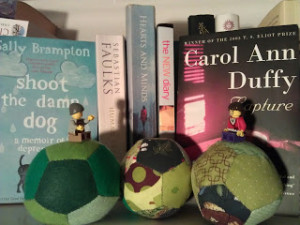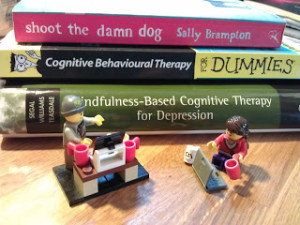- Tips and suggestions for managing depression and anxiety within relationships.
- Managing mental health when meeting someone new; the early days of uncertainty and strong emotions.
- Managing depression and anxiety in a committed relationship
- Establish it as something external to you both – distinguish between your relationship and the illness.
- Find your own language to help your partner understand.
- Try and explain how the illness affects how you feel and behave – and recognise these as symptoms not reality.
- Examine your motivations before you act.
- Use what works – even if it feels weird at first
- Enlist the help of your partner – and don’t disregard it when they give it.
- Read up on depression and anxiety and ask about it.
- Don’t underestimate the pressure that being the one relied on can cause – get some external support for you both.
Tips and suggestions for managing depression and anxiety within relationships.
A version of this article was published in the Summer 2013 edition of ONEinFOUR magazine.
Managing mental health when meeting someone new; the early days of uncertainty and strong emotions.
Four years ago I was pretty happy. I felt I was finally managing to keep all life’s balls in the air.  In meeting someone new, another ball was introduced. This ball brought strong emotions with it: uncertainty, interdependence and allowing someone else to influence my feelings. Fitting this ball into the show without dropping the rest proved difficult.
In meeting someone new, another ball was introduced. This ball brought strong emotions with it: uncertainty, interdependence and allowing someone else to influence my feelings. Fitting this ball into the show without dropping the rest proved difficult.
In the early weeks the obsessive, over thinking part of my mind – the part that makes me ill – stirred and breathed its negative fog over everything. It was poked awake by the healthy but strong emotions associated with falling in love. And then it distorted them horribly.
Liking someone brings vulnerability, uncertainty and risk of rejection. Could I keep this experience separate from the part of my mind that worries over things until it’s wrung out every negative conclusion? Could I stop myself seeing every uncertain incident as an example of my inability to conduct relationships?
Recognising and distinguishing between the emotions that come with the territory of falling in love and those made worse by my depression helped me to focus on the former and disregard the latter. I’m very glad I did. I wrote a little more about how I worked through some of these emotions in my post ‘Writing my mind – writing in the immediacy of the moment’.
Managing depression and anxiety in a committed relationship
That was the early days. And despite the uncertainties being countered by excitement and the rushes of dopamine and norepinephrine, I’m glad they’re over. But how do you manage when depression or anxiety are part of a committed relationship? It isn’t easy. Depression and anxiety can magnify and distort emotions. You need to be on your guard. When looking through their unnatural or distorting lens you can start to feel that there is a problem with the relationship itself – or with one person within it.
When you have to manage mental health in a relationship you need to ensure that that your safety net is strong and maintained by you both to avoid regularly hitting crisis point. So what can work?
Set yourselves up as a team, dealing with the illness together. Viewing it as external to you  both stops it being associated purely with one individual or becoming too intertwined with the rest of the relationship. It isn’t physically separate in the same way as a difficult family member or landlord – but try to approach dealing with it in the same way. A lot of people say they find a metaphor such as the black dog useful as a way to clearly define the illness as an external party. This brings me nicely on to;
both stops it being associated purely with one individual or becoming too intertwined with the rest of the relationship. It isn’t physically separate in the same way as a difficult family member or landlord – but try to approach dealing with it in the same way. A lot of people say they find a metaphor such as the black dog useful as a way to clearly define the illness as an external party. This brings me nicely on to;
The better your partner understands what is going on in your head, the easier they will find it to help. If your partner hasn’t experienced depression they might wonder why you can’t pull yourself out of it or worry that something they have done has caused it. How can you describe it in a way you will both understand? I use the description of a negative fog in my mind that magnifies and bounces every thought back at me.
Saying…
‘I feel a bit foggy tonight, I think I’m going to go to bed‘
will help your partner to understand your needs better than if you say
‘I feel like shit, I’m going to bed, don’t talk to me’
…something that will inevitably lead to their worrying that it’s something they’ve done.
A symptom of my depression is feeling needy and over dependent. Because these are negative experiences one might have in a relationship anyway, it’s important to identify that they are a result of the illness.
Saying…
‘when I’m low, I feel really needy, so I might be a bit dependent and irrational today’
…sets you up much better to manage than communication purely based on the current feeling of neediness..
‘why are you going out today, I really want you to stay in, do you even love me?’
If your partner doesn’t understand, they may see your behaviour (for example, being very needy) as irrational. You might respond by ignoring them or refusing to open up. But what is your motivation here? Fundamentally, what you might be looking for is the attention your ‘needy feeling’ wants. But responding by ignoring them may start an argument or cause upset. Establish what you really need and look for the clearest most open path to get it.
It’s common to feel as though relationships should flow wonderfully and if they don’t then there’s something wrong. This is a disempowering viewpoint. Relationships take work and management – but you also have agency. You have power to find techniques to make it work. For example you could try writing difficult things down. It might feel odd to write to your partner – but you will have more time to formulate what you want to say and they will have more time to absorb it and work out how they feel. Be prepared and open to trying things that you might not think is ‘you’. This might be a mindfulness course or some counselling – as a couple or individually.
Writing letters might not work for you but you shouldn’t feel odd about using whatever does. It’s actually a really normal and healthy way to negotiate difficult times effectively. Finding new spaces and ways of managing and talking about how to strengthen your couple ‘team’ can be really valuable – and in ways you don’t always expect.
When feeling depressed it’s hard to imagine you’ll ever feel better. You often need help to be reminded about what feeling better feels like. Your partner can help. Try and listen to them – even if in the moment you genuinely can’t believe them. Knowing your partner knows you and wants the best for you means its easier to trust them when they are encouraging you to take a shower or attend your appointment. Your partner can also help you notice the warning signs of a relapse and encourage you to take positive action – especially if you identify these signs and actions together.
Know your enemy. There are loads of useful resources on and offline that can help you  understand the issues and how you can help each other. These include factsheets and articles – for example from TheSite, Rethink, Mind, Sane, Couple Connection or magazines like Mental Healthy. Share anything makes sense or describes how you feel. Sometimes other people can put things into words better than we can.
understand the issues and how you can help each other. These include factsheets and articles – for example from TheSite, Rethink, Mind, Sane, Couple Connection or magazines like Mental Healthy. Share anything makes sense or describes how you feel. Sometimes other people can put things into words better than we can.
It’s easy to become too reliant on each other and to feel as though only your partner really understands you. This adds pressure to you both. Think about what support you or your partner can get from other people – and don’t be afraid to ask for it. Hearing other’s stories or just having somewhere else to talk about it – whether this is online, or with a friend over coffee or a drink – can really help.
Finally, keep talking. Honest communication is key to ensuring your relationship not only stays healthy but perhaps even gets stronger as a result of managing difficult times together.
So that’s my thoughts. What works for you?
Want more? Check out Madly in Love on TheSite.org. It’s a whole site dedicated to mental health and relationships.
A version of this blog was published on Mind’s website.

Wonderful, thank you. This and the island metaphor blog really helped me.
Thank you very much – really glad to hear it helps 🙂 Take care of yourself xxx
Thank you 🙂 This was very helpful!
Excellent article – I shall be sharing this. Many thanks to you for sharing. 🙂
Thank you very much – glad to hear you found it helpful and want to share 🙂
Great blog! In my experience it’s been really useful to make concrete plans for when I’m feeling (and acting) a certain way. For example, my girlfriend and I have agreed that when I feel really low and go very quiet and distant (the opposite of how it manifests with you), to avoid miscommunication/second guessing and awkward silences, we’ll do something together like watch a film or read that doesn’t involve talking but still feels like we’re doing something together.
That’s so helpful – thanks for adding it 🙂 Interesting that the manifestations are very different but the way you deal with it is similar – key really seems to be identifying what your behaviour is like when you’re depressed, explaining and exploring it together and agreeing on a plan of action that works for you both. Really good to hear from someone whose experience is a bit different – thank you.
This blog is so helpful to me I can relate to almost 100% of it. I’m so glad I’m not the only one who feels like this. I have severe abandonment issues so this comes in to play with pretty much all my relationships and it’s very difficult. I plan to show this blog to my partner tonight I think it will really help him understand how I feel and hopefully this is the first positive step for us. I keep blaming my problems on other things because I don’t want to admit that I’ve let the demons into our relationship. I feel like now that he’s seen the ‘real me’ there’s no turning back and there’s no way we can ever be how we used to be but I so desperately want to. He’s very quick to get on the defensive and I think that is just him not understanding especially when, for him, my breakdowns seem out of nowhere. I can sit and brew something in my mind for days, even weeks, but seem OK on the exterior then all of a sudden one day I’m all tears and it’s hard for me to explain it to him without me seeming super irrational. I’m so scared this is all going to backfire on me and we won’t get anywhere. We went to one counselling session but the counsellor made me feel like I was the problem and it was my anxiety that was causing it all which is probably true. I think your tip about treating the depression/anxiety separately is definitely going to help and I’m confident my little team can get through this. I want to spend the rest of my life with this man. Wish me luck!
Really glad you found it helpful. Best of luck with everything – it’s not an easy thing to manage but you are going about it in the right way by talking and researching and sharing as much as possible. Sounds like a great team! xx
It was a success! We’ve figured out an action plan.
What are some of the things you do if/when you or your partner notice that you’re starting to feel a bit low? I need some ideas 🙂
Hi – so pleased you’ve figured out a plan. Sorry it’s taken me a little while to get back to you. I don’t know if you’ve seen this I wrote for Mind – it’s got lots of info on what you can do to take care of yourself – and how you and your partner can start to recognise that slip into low mood and take actions together to counteract it a little – http://www.mind.org.uk/information-support/your-stories/a-diary-of-mindfulness-week-seven-taking-care-of-yourself/#.Vh1uhrRVhBc. MBCT is very useful for me – might be worth exploring too. xxx